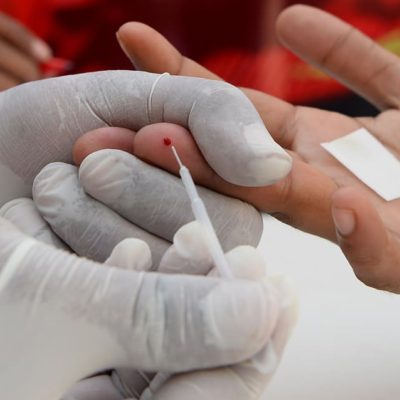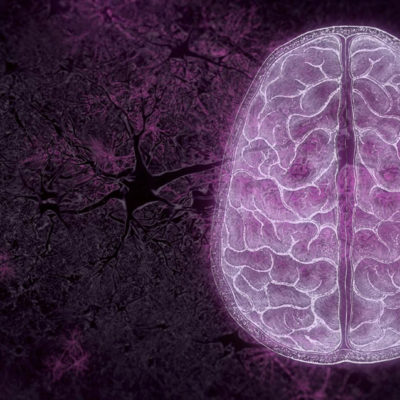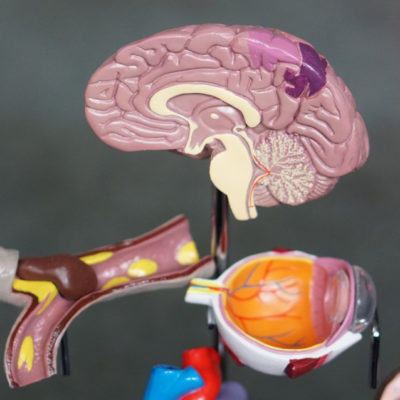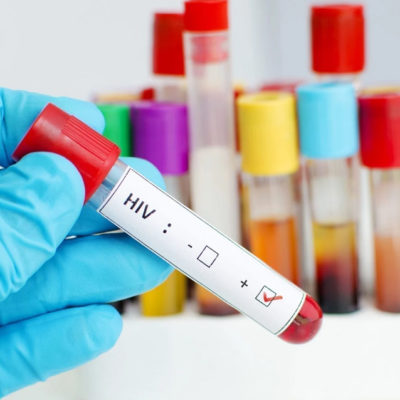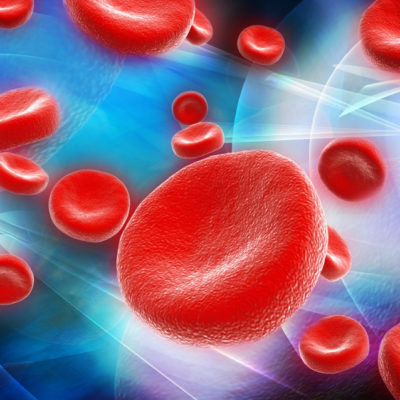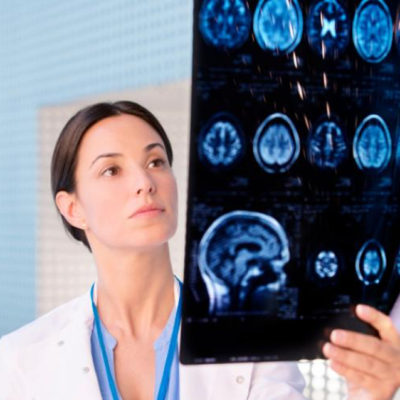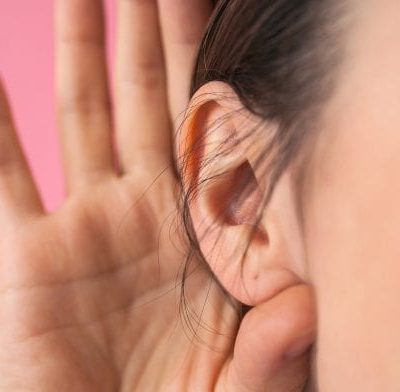Now is the time for the United States of America and India to collaborate to tackle the global mental health crisis we are witnessing today, United States Surgeon General Dr Vivek Murthy said at a press conference in the city recently. Dr Murthy is the first Surgeon General of Indian descent. As the Co-Chair of the World Health Organization’s Commission on Social … [Read more...]
Alternative Health News

Games, Puzzles and Reading can Slow Cognitive Decline in the Elderly — Even in Those with Mild Cognitive Impairment
The aging process can lead to diminished cognitive functioning for older adults. In addition, about 10 percent of people previously diagnosed with mild cognitive impairment develop Alzheimer's disease or other forms of dementia every year. Although a few studies have found that activities such as putting together jigsaw puzzles can protect against cognitive aging, the … [Read more...]
It Only Takes 15 Minutes to Change Your Health
Corporate Cup, lunchtime yoga, or even 'walk and talks', organisations come up with all sorts of wellness initiatives to encourage people to be more active in the workplace. But before you duck and hide, new research shows that all it takes is 15 minutes and a touch of gamification to put you on the path to success. Assessing results from 11,575 participants, across 73 … [Read more...]
Confronting Trauma Alleviates Chronic Pain Among Older Veterans
A new study led by UCLA Health and the U.S. Veterans Affairs Office found chronic pain among older adults could be significantly reduced through a newly developed psychotherapy that works by confronting past trauma and stress-related emotions that can exacerbate pain symptoms. Published in JAMA Network Open on June 13, the study compared the newer therapy, known as emotional … [Read more...]
Laughter The Best Medicine in Japan: Local govt Passes New Health Law
The local government in Japan’s Yamagata prefecture has introduced an ordinance encouraging residents to laugh at least once daily to promote better physical and mental health, according to a report by South China Morning Post. Passed by members of the Liberal Democratic Party (LDP) last Friday, the ordinance aims to foster a happier and healthier community. It also calls on … [Read more...]
WHO Warns mpox Remains Global Health Threat
Good morning, good afternoon and good evening, First, an update on H5N1 avian influenza. Last week, the United States reported a fourth human case of H5N1 following exposure to infected dairy cows. Cambodia also reported two cases in children who had contact with sick or dead chickens. For the moment, no human-to-human transmission has been reported, which is why … [Read more...]
How Stress Knocks Out Your Cognitive Reserve
While mentally stimulating activities and life experiences can improve cognition in memory clinic patients, stress undermines this beneficial relationship. This is according to a new study from Karolinska Institutet published in Alzheimer's & Dementia: The Journal of the Alzheimer's Association. Researchers in the late 1980s found that some individuals who showed no … [Read more...]
The Impact of the Family Dog on The Exercise Habits of Kids.
With two-thirds of children in the U.S. failing to meet national physical activity guidelines, kinesiologists at the University of Massachusetts Amherst have been looking at the impact of the family dog on the exercise habits of kids. Could having a canine best friend get kids on their feet and help bring them more in line with the minimum recommendation of 60 minutes of … [Read more...]
Researchers a Step Closer To a Cure For HIV
In a first, the study published in the journal Emerging Microbes and Infections demonstrated the team's patented therapeutic candidate, an HIV-virus-like-particle (HLP), is 100 times more effective than other candidate HIV cure therapeutics for people living with chronic HIV on combined antiretroviral therapy (cART). If successful in clinical trials, HLP could be used by … [Read more...]
Large-Scale Study Uncovers Modifiable Risk Factors For Young-Onset Dementia
Researchers have identified a wide range of risk factors for young-onset dementia. The findings challenge the notion that genetics are the sole cause of the condition, laying the groundwork for new prevention strategies. The largescale study identified 15 risk factors, which are similar to those for late-onset dementia. For the first time, they indicate that it may be … [Read more...]
High-Quality Sleep Promotes Resilience to Depression and Anxiety
The study, led by researchers at the University of York, highlights that chronic stress is a major risk factor for a number of mental health disorders, including depression and pathological anxiety, but high-quality sleep and coping strategies -- such as the ability to reframe a situation to see the positive side -- can help to prevent poor mental health when faced with … [Read more...]
Landmark Study Finds That The Shape of The Brain Influences The Way it Works
For over a century, researchers have thought that the patterns of brain activity that define our experiences, hopes and dreams are determined by how different brain regions communicate with each other through a complex web of trillions of cellular connections. Now, a study led by from researchers at Monash University's Turner Institute for Brain and Mental Health has … [Read more...]
Healthy Aging Requires an Understanding of Personality Yypes
New research shows that older adults may be better supported as they age when their personalities are considered -- for example, are they more like orchids or dandelions? Researchers from Simon Fraser University's Circle Innovation examined the potential effects of lifestyle activities on the cognitive health of more than 3,500 adults aged 60+, and found that … [Read more...]
New Study Reveals Why HIV Remains in Human Tissue Even After Antiretroviral Therapy
Thanks to antiretroviral therapy, HIV infection is no longer the life sentence it once was. But despite the effectiveness of drugs to manage and treat the virus, it can never be fully eliminated from the human body, lingering in some cells deep in different human tissues where it goes unnoticed by the immune system. Now, new research by University of Alberta immunologist … [Read more...]
A Novel Painless and Reliable Allergy Test
Approximately one third of the world's population suffers from one or more allergies, with the trend increasing every year. By far the most widespread form of allergy is the so-called type I allergy, also known as immediate-type allergy. This includes, for example, allergic rhinitis (hay fever), allergic asthma, food allergies, or allergies against insect venoms, pollen, … [Read more...]
How a Newly Approved Antibody Treatment Can Help People Who Can’t Get COVID-19 Vaccines
There’s a new tool in the fight against COVID-19, but it’s not a vaccine. An antibody combination drug known as Evusheld has receivedTrusted Source an emergency use authorization from the Food and Drug Administration (FDA) to help prevent COVID-19 in some adults and children over the age of 12 who are at least 88 pounds. Under this therapy, a person receives two … [Read more...]
Microglial Methylation ‘Landscape’ in Human Brain
In the central nervous system, microglial cells play critical roles in development, aging, brain homeostasis, and pathology. Recent studies have shown variation in the gene-expression profile and phenotype of microglia across brain regions and between different age and disease states. But the molecular mechanisms that contribute to these transcriptomic changes in the human … [Read more...]
Clues to Treatment of Schizophrenia and Bipolar Disorder found in Recently Evolved Region of the ‘Dark Genome’
Scientists investigating the DNA outside our genes -- the 'dark genome' -- have discovered recently evolved regions that code for proteins associated with schizophrenia and bipolar disorder. They say these new proteins can be used as biological indicators to distinguish between the two conditions, and to identify patients more prone to psychosis or suicide. Schizophrenia … [Read more...]
HIV Infection: Better Understanding The Reservoir of Virus in the Body
LMU researchers have developed a method that allows resting human immune cells to be genetically analyzed in detail for the first time. CD4+ T cells are important parts of the immune system and play a key role in defending the body against pathogens. As they possess a great variety of defense mechanisms against HIV in their resting state, they are infected only very rarely … [Read more...]
Novel assay finds new mechanism underlying red blood cell aging
Red blood cells are the most abundant cell type in blood, carrying oxygen throughout the human body. In blood circulation, they repetitively encounter various levels of oxygen tension. Hypoxia, a low oxygen tension condition, is a very common micro-environmental factor in physiological processes of blood circulation and various pathological processes such as cancer, chronic … [Read more...]
How HIV Infection Shrinks the Brain’s White Matter
It's long been known that people living with HIV experience a loss of white matter in their brains. As opposed to "gray matter," which is composed of the cell bodies of neurons, white matter is made up of a fatty substance called myelin that coats neurons, offering protection and helping them transmit signals quickly and efficiently. A reduction in white matter is associated … [Read more...]
Evidence Supports COVID-19 Hearing Loss Link, Say Scientists
Hearing loss and other auditory problems are strongly associated with Covid-19 according to a systematic review of research evidence led by University of Manchester and NIHR Manchester Biomedical Research Centre (BRC) scientists. Professor Kevin Munro and PhD researcher Ibrahim Almufarrij found 56 studies that identified an association between COVID-19 and auditory and … [Read more...]
Life changes influence physical activity
Life changes influence the amount of physical activity in a person, according to a recent study by the University of Jyväskylä. The birth of children and a change of residence, marital status and place of work all influence the number of steps of men and women in different ways. For women, having children, getting a job and moving from town to the countryside reduce everyday … [Read more...]
Dental experts discover biological imbalance is the link between gum and kidney disease
An imbalance of the body's oxygen producing free radicals and its antioxidant cells could be the reason why gum disease and chronic kidney disease affect each other, a new study led by the University of Birmingham has found. Periodontitis -- or gum disease -- is a common, inflammatory disease which causes bleeding gums, wobbly or drifting teeth and can eventually result in … [Read more...]
Can sleep protect us from forgetting old memories?
From lowering your risk of obesity and cardiovascular disease to improving your concentration and overall daily performance, sleep has been proven to play a critical role in our health. In a new study, researchers at University of California San Diego School of Medicine report that sleep may also help people to learn continuously through their lifetime. Writing in the August … [Read more...]
Wording of vaccination messages influences behavior
When it comes to vaccination, words matter as do perceptions of what is normal behavior. An experiment by Washington State University researchers revealed that relatively small differences in messages influenced people's attitudes about the human papillomavirus or HPV vaccine, which has been shown to help prevent cancer. Young adult subjects in the study recently published … [Read more...]
Inexpensive retinal diagnostics via smartphone
Retinal damage due to diabetes is now considered the most common cause of blindness in working-age adults. In low- and middle-income countries, an eye examination via smartphone could help to detect changes at an early stage. This is shown by a new study carried out by scientists from the University of Bonn together with colleagues from Sankara Eye Hospital Bangalore (India). … [Read more...]
New approach to some mental disorders
Some of the most common mental disorders, including depression, anxiety and PTSD, might not be disorders at all, according to a recent paper by Washington State University biological anthropologists. In the paper, published in the Yearbook of Physical Anthropology, the researchers propose a new approach to mental illness that would be informed by human evolution, noting that … [Read more...]
Dementia gene raises risk of severe COVID-19
Having a faulty gene linked to dementia doubles the risk of developing severe COVID-19, according to a large-scale study. Researchers at the University of Exeter Medical School and the University of Connecticut School of Medicine analysed data from the UK Biobank, and found high risk of severe COVID-19 infection among European ancestry participants who carry two faulty … [Read more...]
Tiny RNA that should attack coronavirus diminish with age, disease
A group of tiny RNA that should attack the virus causing COVID-19 when it tries to infect the body are diminished with age and chronic health problems, a decrease that likely helps explain why older individuals and those with preexisting medical conditions are vulnerable populations, investigators report. MicroRNAs play a big role in our body in controlling gene expression, … [Read more...]
- 1
- 2
- 3
- …
- 25
- Next Page »








